Studying in New Zealand for Thai Students
“The times I spent in New Zealand are the best years of my life,” said John Chaokasam who attended secondary school in Auckland. His thoughts seem to be shared by about 3,000 Thai students who flock to NZ ever year. Thailand is the sixth largest source of international students bound to New Zealand and at 98,000-strong, is the third largest follower of Study in New Zealand page in social media. John relates that his biggest regret was not studying hard enough. He didn’t qualify for tertiary education in NZ and is now studying in Bangkok. Despite this, he strongly recommends New Zealand for any Thai planning to study overseas. Want to join the party? Here are a few important things to know.
Entry Requirements
Your journey to New Zealand begins right at home. New Zealand pre-entry requirements abound so it is important that you know the right ones based on your circumstance. Anyone who is planning to study in NZ for more than three months is required to have a student visa. That’d cost you roughly, 800 Baht. Additional services may apply if you opt for courier services. More information about fees can be found here <https://www.ttsnzvisa.com/th-en/Fee-Detail/Service-Fee >.
New Zealand Immigration will ask you for documentary requirements when you apply for a student visa. Basically, they would want to know that (i) a NZ school has accepted your application, (ii) you are financially capable to support yourself while you study in New Zealand, and (iii) you are fit enough for the demands of academic work. That’s the reason why an Offer of Place, Evidence of Funds, and a General Medical Certificate are being required. Read this for an in-depth list of requirements specific for Thai students <https://www.immigration.govt.nz/documents/checklists/thailand/checklist-for-bangkok-student-visa-general.pdf >.
Getting There
A non-stop flight from Bangkok to Auckland is about 12 hours which is reasonable considering that you are flying across 6,100 miles. Getting a flight from Bangkok to major regions of NZ such as Auckland, Wellington, and Christchurch shouldn’t be a problem as national carriers, Air New Zealand and Thai Airways fly to these major destinations.
Getting around when you land in New Zealand is safe and easy as towns and cities are connected by a vast network of trains, buses, as well as domestic airports.
Costs
Studying overseas is a major investment and you should expect to shell out a considerable amount of money for the purpose. School fees vary. Would you be studying in a state or private institutions? How long are you going to study? At what level? Answers to these would reveal a more realistic cost for your studies. In general, PhD students and English language students have to pay the least while individuals pursuing Bachelors degree and post-graduate studies tend to pay the most. A detailed list of New Zealand university fees can be found here< https://www.universitiesnz.ac.nz/sites/default/files/uni-nz/Fees%20for%20International%20Students%202018.pdf>.
Have the dream but not the dough? Don’t despair! There are scholarships and grants granted by the government and NZ learning institutions specifically for Thai nationals. Access them here <https://www.studyinnewzealand.govt.nz/how-to-apply/scholarship/search-results?nationalityid=196>.
There isn’t a hard and fast formula in determining living costs. Your day to day expenses would depend on your lifestyle and the region in NZ that you are in. Generally, the cost of living in New Zealand is 54% higher than in Thailand. For instance, when you would just spend about 106 Baht for a basic lunch plus drinks back home would cost you 404 Baht in NZ. Rent follows the same trend. The rent for a 45m2 furnished studio in Bangkok costs 23,100 Baht. That more than doubles if you rent the same thing in Auckland (46,500 Baht). Practice discipline and learn how to budget to prevent overspending and going into debt.
Work Opportunities
Having a NZ student visa allows you to work a maximum of 20 hours per week during the term and full-time during the holidays. This is a great way to gain industry experience and offset living costs. NZ offers casual work and internships across industries so students of diverse backgrounds wouldn’t have trouble looking for work. In addition, academic institutions offer part-time work through teaching, tutoring and carrying out administrative tasks.
Thai students are heading to New Zealand for good reason. Like John, experience the best years of your life in NZ and stay for the wonderful opportunities.



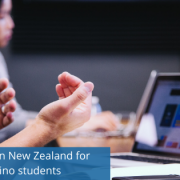

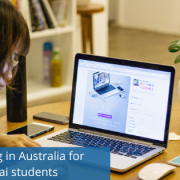


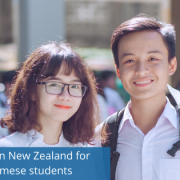
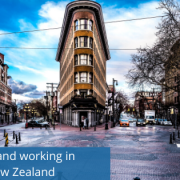
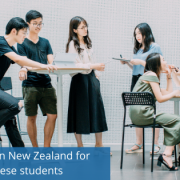


Leave a Reply
Want to join the discussion?Feel free to contribute!